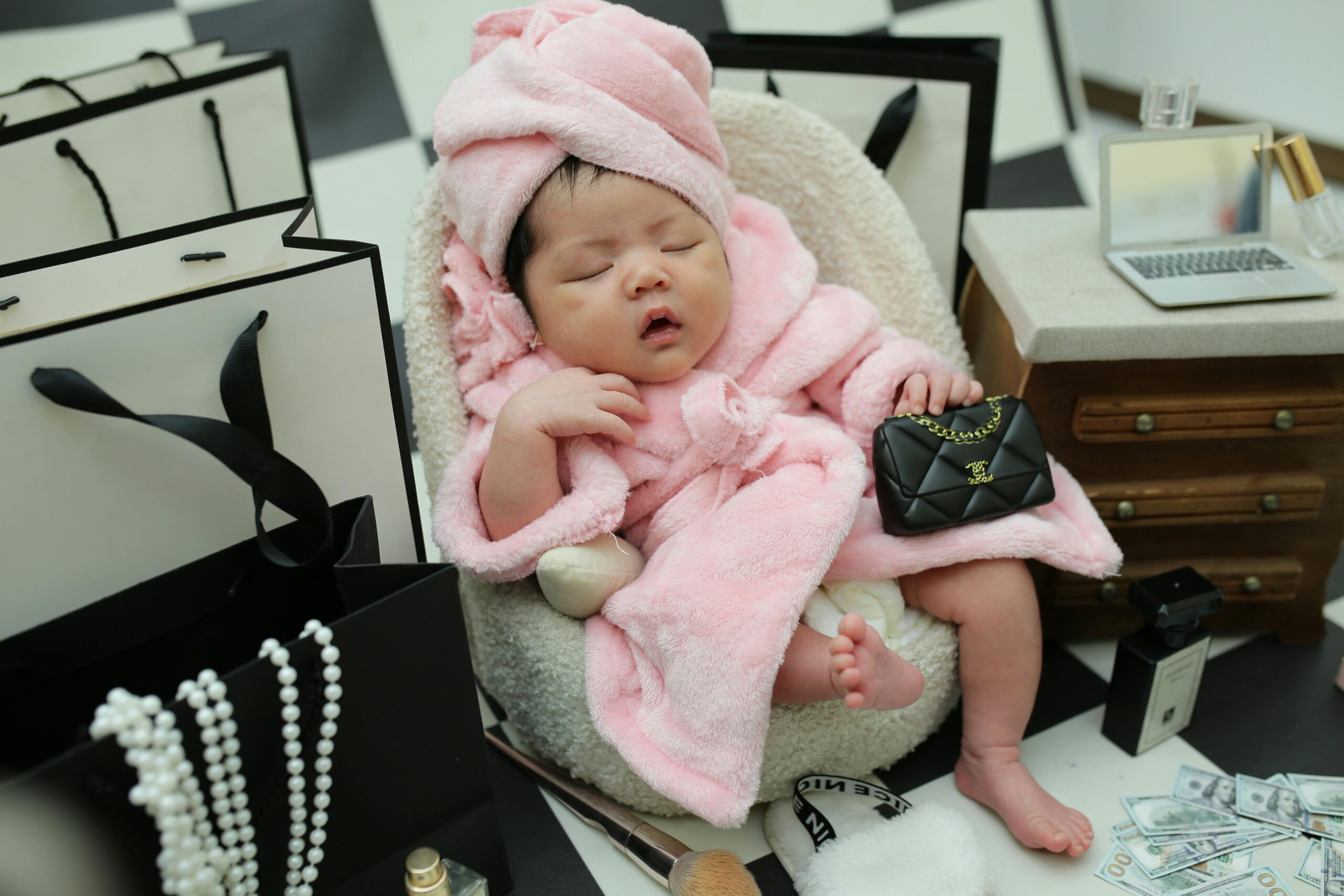Luxury isn’t just about owning expensive things—it’s a complex psychological phenomenon that reveals our deepest desires, social aspirations, and sense of identity. Understanding why we covet high-end goods unveils fascinating truths about human nature.
💎 The Allure of Exclusivity: Why We Crave What Others Can’t Have
At the heart of luxury consumption lies a powerful psychological principle: the desire for exclusivity. When something becomes scarce or difficult to obtain, our brains automatically assign it higher value. This isn’t merely superficial vanity—it’s a deeply embedded cognitive bias that has evolutionary roots in resource competition and status signaling.
Luxury brands understand this mechanism intuitively. Limited editions, invitation-only sales, and waitlists aren’t just marketing gimmicks; they’re sophisticated psychological triggers that activate our competitive instincts. When Hermès produces only a handful of their iconic Birkin bags each year, they’re not simply managing supply—they’re creating a psychological narrative of unattainability that makes the product infinitely more desirable.
Research in consumer psychology demonstrates that products perceived as exclusive activate reward centers in the brain similar to those triggered by achieving significant accomplishments. The satisfaction derived from owning something rare transcends the object itself, tapping into our fundamental need for distinction and recognition within our social groups.
🧠 Status Signaling and Social Identity Theory
Luxury goods function as powerful communicators in the silent language of social hierarchy. According to social identity theory, humans naturally categorize themselves and others into various groups, and luxury consumption becomes a visible marker of group membership and social standing.
Thorstein Veblen, the economist who coined the term “conspicuous consumption” in 1899, recognized that wealthy individuals often purchase expensive items not for their functional utility but to display wealth and status. This behavior, far from being outdated, has only intensified in our image-driven, social media-saturated culture.
The psychology behind status signaling through luxury goods operates on multiple levels. First, there’s the immediate recognition factor—certain brands have become universally recognized symbols of wealth and success. A Rolex watch or Louis Vuitton handbag instantly communicates information about the owner’s economic status without a single word being exchanged.
Second, luxury consumption helps individuals define their aspirational identity. People don’t just buy what they can afford; they buy what represents who they want to become. This explains why young professionals might stretch their budgets for designer items—they’re investing in a future identity, not just a present purchase.
The Paradox of Inconspicuous Consumption
Interestingly, modern luxury psychology has evolved to embrace a new phenomenon: inconspicuous consumption. As wealth has become more widespread among certain demographics, the ultra-wealthy have shifted toward subtler signals of status—items that appear understated but are recognized by those “in the know” as extraordinarily expensive.
This shift represents a more sophisticated form of status signaling, where knowledge itself becomes a luxury marker. Owning a Brunello Cucinelli cashmere sweater or a Loro Piana coat signals refinement to those educated in luxury, while remaining relatively anonymous to the general public. This creates an exclusive club of recognition that reinforces in-group identity among the affluent.
✨ The Quality Justification: When Price Equals Perceived Value
One of the most powerful psychological mechanisms in luxury consumption is the price-quality heuristic—our brain’s shortcut that automatically associates higher prices with superior quality. This cognitive bias influences purchasing decisions across all categories but becomes particularly pronounced in the luxury sector.
Studies using neuroimaging have demonstrated that when people believe they’re experiencing something expensive, their brains literally register more pleasure. In one famous wine study, participants consistently rated the same wine as tasting better when told it was expensive compared to when told it was cheap. The price information actually changed their subjective experience.
This phenomenon extends beyond mere perception. Luxury brands invest significantly in craftsmanship, materials, and heritage—elements that often do translate into objectively superior products. However, the psychological premium consumers are willing to pay frequently exceeds the actual quality differential. This gap represents the emotional and symbolic value that luxury goods provide beyond their functional attributes.
The Craftsmanship Narrative
Luxury brands excel at storytelling, particularly narratives around heritage, artisanship, and attention to detail. These stories serve important psychological functions by providing rational justifications for emotional purchases. When a consumer pays thousands for a handbag, knowing it was hand-stitched by master craftspeople using techniques passed down through generations helps rationalize the expenditure.
This craftsmanship narrative also connects to our psychological need for authenticity in an increasingly mass-produced world. Luxury goods promise a connection to human skill, tradition, and permanence—qualities that resonate deeply in our fast-paced, disposable culture.
🎭 The Self-Expression Dimension: Luxury as Personal Statement
Beyond status signaling to others, luxury consumption serves crucial functions in self-expression and identity construction. The extended self theory in consumer psychology posits that our possessions become part of how we define ourselves. Luxury items, with their rich symbolic meanings and cultural associations, become particularly powerful tools for self-definition.
When someone chooses a minimalist Scandinavian luxury brand over an ornate Italian one, they’re making a statement about their aesthetic values, personality, and worldview. These choices aren’t superficial—they’re deeply connected to how individuals understand and express their authentic selves.
The psychological satisfaction derived from luxury purchases often comes from this alignment between product symbolism and self-concept. When what we own reflects who we believe we are, it creates a sense of congruence and authenticity that contributes to well-being and self-esteem.
💸 The Hedonic Adaptation Challenge: Why Luxury Never Satisfies for Long
One of the most fascinating psychological aspects of luxury consumption is its relationship with hedonic adaptation—our tendency to return to a baseline level of happiness despite positive or negative changes in our circumstances. This phenomenon creates a perpetual cycle in luxury consumption that brands capitalize on effectively.
Initially, acquiring a luxury item produces genuine pleasure and excitement. The anticipation, the purchase experience, and the first days of ownership activate dopamine pathways associated with reward and pleasure. However, hedonic adaptation means this elevated state doesn’t last. What once seemed extraordinary gradually becomes ordinary, prompting the desire for the next acquisition.
This psychological mechanism helps explain why luxury consumption can become cyclical or even compulsive for some individuals. The brief satisfaction followed by adaptation creates a treadmill effect, where consumers must continually purchase to maintain the same level of emotional reward.
The Experience Economy Shift
Recognizing the limitations of hedonic adaptation to material goods, both consumers and luxury brands have increasingly embraced experiential luxury. Research consistently shows that experiences provide more lasting satisfaction than material purchases, primarily because they become part of our identity and memories in ways that objects cannot.
Luxury travel, exclusive dining experiences, and bespoke services represent this evolution. These experiences still provide status signaling and self-expression opportunities but offer better psychological returns by creating lasting memories and stories that continue to provide satisfaction long after the experience concludes.
🌍 Cultural Variations in Luxury Psychology
The psychology of luxury isn’t universal—it varies significantly across cultures, revealing how deeply our consumption patterns are embedded in cultural values and social structures. Understanding these variations illuminates the complex interplay between individual psychology and cultural context.
In individualistic Western cultures, luxury consumption often emphasizes personal achievement, self-expression, and individual taste. The psychological rewards center on standing out and expressing uniqueness. In contrast, collectivistic Eastern cultures may emphasize luxury consumption as fulfilling family obligations, maintaining social harmony, or honoring relationships through gift-giving.
In rapidly developing economies, luxury goods often carry different psychological meanings than in established wealthy nations. They may represent modernization, global citizenship, or upward mobility in ways that resonate with specific cultural narratives about progress and success.
🔬 The Neuroscience of Luxury Desire
Modern neuroscience has begun uncovering the brain mechanisms underlying luxury desire, revealing that our attraction to high-end goods isn’t merely learned behavior but involves fundamental neural processes related to reward, pleasure, and decision-making.
Brain imaging studies show that viewing luxury brand logos activates the medial prefrontal cortex, a brain region associated with self-relevance and personal identity. This suggests that luxury brands become neurologically linked to our sense of self. Additionally, the ventral striatum, part of the brain’s reward system, shows heightened activation when people view luxury goods they desire.
Interestingly, research has also identified that people with stronger activation in brain regions associated with social cognition show greater preference for publicly consumed luxury goods, supporting the social signaling theory of luxury consumption.
💭 The Dark Side: When Luxury Becomes Compulsion
While luxury consumption can provide genuine pleasure and serve legitimate psychological functions, it’s important to acknowledge when the psychology becomes problematic. For some individuals, luxury shopping can develop into compulsive buying behavior, where purchases are driven by anxiety, low self-esteem, or attempts to fill emotional voids.
The psychological mechanisms that make luxury appealing—the dopamine rush, the status boost, the identity reinforcement—can become addictive for vulnerable individuals. When luxury consumption transitions from occasional indulgence to compulsive need, it signals underlying psychological issues that require attention beyond consumer behavior.
Additionally, the constant exposure to luxury lifestyles through social media and advertising can create unrealistic standards and social comparison that negatively impact mental health and financial well-being, particularly among younger consumers still developing their relationship with money and self-worth.
🎯 Authentic Luxury: Finding Psychological Balance
Understanding the psychology behind luxury consumption empowers more conscious and satisfying relationships with high-end goods. Rather than viewing all luxury purchases as shallow or problematic, a balanced approach recognizes both the legitimate pleasures and the potential pitfalls.
Psychologically healthy luxury consumption involves self-awareness about motivations. Are you purchasing because the item genuinely enhances your life and aligns with your values? Or are you seeking external validation, trying to fill an emotional void, or competing in a status race that brings no lasting satisfaction?
The most fulfilling luxury purchases tend to be those that combine multiple psychological benefits: genuine quality that enhances daily life, authentic self-expression that aligns with personal values, and perhaps a touch of well-earned celebration. When luxury serves these functions rather than merely filling psychological gaps, it contributes positively to well-being.

🌟 The Future of Luxury Psychology
As society evolves, so does the psychology of luxury. Younger generations are reshaping luxury consumption around different values, with sustainability, authenticity, and experiential richness often trumping traditional status markers. This shift reflects changing psychological needs and cultural values that luxury brands must navigate.
The rise of digital luxury, virtual goods, and NFTs represents a fascinating evolution in luxury psychology—demonstrating that the psychological benefits of exclusivity, status signaling, and self-expression don’t require physical objects. These developments suggest that luxury is fundamentally about psychological satisfaction rather than material substance.
Moreover, the growing emphasis on wellness, mindfulness, and mental health is creating space for more intentional, psychologically aware luxury consumption. Rather than mindless accumulation, future luxury may increasingly focus on meaningful experiences, personal growth, and genuine enhancement of life quality—addressing deeper psychological needs than mere status display.
The psychology behind luxury goods reveals profound truths about human nature—our desires for recognition, our need for identity expression, our responses to scarcity, and our eternal quest for meaning and satisfaction. By understanding these mechanisms, we can engage with luxury more consciously, whether as consumers making purchasing decisions, marketers crafting brand strategies, or simply humans trying to understand what truly brings lasting fulfillment. Luxury, at its best, should enrich life genuinely rather than merely feed endless cycles of desire and temporary satisfaction. The mind of luxury is ultimately the human mind itself, with all its complexity, contradictions, and capacity for both wisdom and folly.
Toni Santos is a behavioural economics researcher and decision-science writer exploring how cognitive bias, emotion and data converge to shape our choices and markets. Through his studies on consumer psychology, data-driven marketing and financial behaviour analytics, Toni examines the hidden architecture of how we decide, trust, and act. Passionate about human behaviour, quantitative insight and strategic thinking, Toni focuses on how behavioural patterns emerge in individuals, organisations and economies. His work highlights the interface between psychology, data-science and market design — guiding readers toward more conscious, informed decisions in a complex world. Blending behavioural economics, psychology and analytical strategy, Toni writes about the dynamics of choice and consequence — helping readers understand the systems beneath their decisions and the behaviour behind the numbers. His work is a tribute to: The predictable power of cognitive bias in human decision-making The evolving relationship between data, design and market behaviour The vision of decision science as a tool for insight, agency and transformation Whether you are a marketer, strategist or curious thinker, Toni Santos invites you to explore the behavioural dimension of choice — one insight, one bias, one choice at a time.




